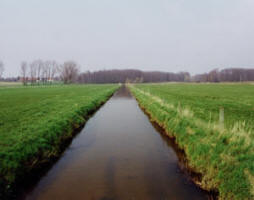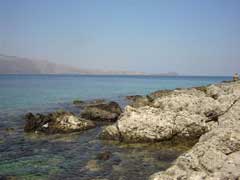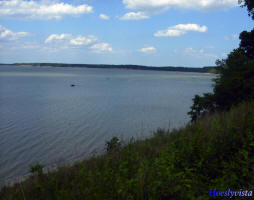 The El Jadida Declaration of the 9th International Conference of the African Association of Remote Sensing of the Environment (AARSE) on: Earth Observation and Geoinformation Sciences for Environment and Development in Africa: Global Vision and Local Action Synergy
The El Jadida Declaration of the 9th International Conference of the African Association of Remote Sensing of the Environment (AARSE) on: Earth Observation and Geoinformation Sciences for Environment and Development in Africa: Global Vision and Local Action Synergy
The African Association of Remote Sensing of the environement (AARSE) and the Chouaib Douakkali University, Faculty of Sciences (CDU_FS), in partnership with the International Islamic Organization for Education, Science and Culture (ISESCO) and the Moroccan Association of Remote Sensing of the Environment (MARSE); organized the 9th International Conference of the African Association of Remote Sensing of the Environment (AARSE) on: "Earth Observation and Geoinformation Sciences for Environment and Development in Africa: Global Vision and Local Action Synergy" held at El Jadida (Morocco) from 29th October to 2nd November 2012.
It focused on the characterization of dynamic Earth processes, assimilation, today's and upcoming satellite missions and integrated Earth observing systems that will allow the formation of a most interesting technical program.
The delegates from 40 countries present at the 9th International AARSE Conference came out with a final declaration:
- Recognising the role of Earth Observation in developing accurate geospatial datasets, information and knowledge to support the efforts of nations in achieving their development agenda;
- Noting the importance of Earth Observation and Geospatial Science and Technology products and services in attaining the Millennium Development Goals (MDG), the World Summit on Sustainable Development (WSSD) objectives, African Union (AU) priorities, and other key national development and poverty alleviation strategies;
- Recognising the importance of Africa’s participation and contribution to the implementation of the Global Earth Observation System of Systems (GEOSS) and noting an increase in a number of African countries and organisations participating in GEO;
- Noting that Africa is making major strides in space science and technology development with several countries such as Algeria, Egypt, Morocco, Nigeria, and South Africa developing successful space programs, including acquiring their own Earth Observation satellites;
- Recognising the meetings and resolutions of the biennial African Space Leadership Conference (ALC) on Space Science and Technology;
- Welcoming the input from international scientific societies including the IEEE Geoscience and Remote Sensing Society (IEEE GRSS) and the International Society for Photogrammetry and Remote Sensing (ISPRS) that support the building of the science base in Africa;
- Recognising the progress made on the African Resource Management (ARM) satellite constellation by the current members of the constellation;
- Recognising the need to establish an African space coordinating mechanism to ensure that Africa’s interests are represented in international space programs collaboration and partnerships; and to develop a coherent policy and strategy for utilising space technology for development;
- Recognising the work of AARSE and the Environmental Information System Africa (EIS Africa) over the past 20 years as major points of contact and facilitators of Earth Observation and Geospatial Information activities in Africa;
- Recognising the role and contribution of the African Union and the United Nations Agencies such as the UN Economic Commission for Africa (UN-ECA) and building on previous declarations and multilateral coordination initiatives in space science and technology for sustainable development in Africa such as the UNESCO/AARSE/AU High-Level Scientific Workshop in 2007;
- Recognising the importance of the protection of marine and coastal environments of Africa and the progress made by the UNESCO Global Ocean Observation System (GOOS) programme in Africa;
- Recognising the importance and success of continued long term collaboration between European Space Agency and African scientists within the TIGER initiative on Earth Observation techniques related to water resources management; and
- Recognising the importance of land demarcation and surveying as the foundation of sound governance.
Hereby declare and call on the African Union and African Governments:
- To ensure that the benefits of space science and technology in regional initiatives are realized;
- To support a coordination office on space affairs at the African regional inter-governmental level, comprising representatives of all space agencies, regional organisations such as AARSE, and other African stakeholders;
- To support the space coordination office to represent Africa’s space science and technology capability in relation to existing and future international programs and partnerships;
- To develop the African space policy and programmes for the eventual establishment of an African Space Agency;
- To encourage and support African universities and other institutions of higher education through adequate funding for fundamental and applied research and teaching in Earth Observation and geoinformation sciences;
- To strengthen and harmonise human resource development and institutional capacity in the fields of Earth Observation and geoinformation sciences by supporting organisations such as AARSE as well as existing and new regional training programmes at tertiary institutions in partnership with United Nation Agencies such as UNECA, UNESCO, UNEP, UNOOSA, FAO, UNDP and UNU;
- To recognise specialised institutions in geoinformation and Earth Observation, notably Regional Centre for Training in Aerospace Surveys (RECTAS), Regional Centre for Mapping of Resources for Development (RCMRD), the UNOOSA Regional Centres in Africa and national institutions of higher learning as the primary vehicles for capacity development in space science and technology development and applications in Africa;
- To inspire Africa’s youth through space based education and outreach programs;
- To engage actively at all levels of GEO and GEOSS and the implementation of AfriGEOSS to bridge the digital divide and to build an Africa-wide knowledge-based economy using the Group on Earth Observations (GEO) networks and emerging GEOSS infrastructure;
- To support the development of the African Resource Management Constellation and the dedicated African Earth observation satellites and to serve the sustainable development needs of Africa;
- To support the dedicated activities in the TIGER Capacity Building Facility and, within the new TIGER-NET project as an essential component, to prepare African water resources experts for the exploitation of African national satellites and the upcoming SENTINEL satellite fleet of the European Space Agency;
- To support new initiatives such as Bridging Actions for Global Monitoring for Environment and Security and Africa (BRAGMA) for addressing broad-based cooperation in thematic areas, such as marine and coastal protection, to be addressed by Earth observation services in Africa;
- To support efforts of agencies, national survey departments and UN ECA initiatives (such as the African Regional Spatial Data Infrastructure – ARSDI, Mapping Africa for Africa – MAFA and African Reference Frame - AFREF) to use modern Earth Observation techniques to update, consolidate and implement accurate land demarcation of national and regional boundaries, public and private cadastral systems to record land custody or ownership.
Download the PDF here.
| Contact information |
Local Organizing Committee, Conference Secretary: Mr. Kamal LABBASSI
(email: klance_remote@yahoo.com ; jide.kufoniyi@aarse-africa.org ; kamal_labbassi@yahoo.fr ; labbassi@ucd.ac.ma) Phone: +212 6 63 10 73 71 Fax: +212 5 23 34 21 87 |
|---|---|
| News type | Inbrief |
| File link |
http://africanremotesensing.org/profiles/blogs/the-el-jadida-declaration-2012 |
| File link local |
|
| Source of information | The African Association of Remote Sensing of the environement (AARSE) |
| Keyword(s) | remote sensing, TIGER |
| Subject(s) | AGRICULTURE , ENERGY , FINANCE-ECONOMY , HYDRAULICS - HYDROLOGY , INFORMATION - COMPUTER SCIENCES , INFRASTRUCTURES , MEASUREMENTS AND INSTRUMENTATION , METHTODOLOGY - STATISTICS - DECISION AID , NATURAL MEDIUM , PREVENTION AND NUISANCES POLLUTION , RISKS AND CLIMATOLOGY , TOOL TERMS , WATER DEMAND |
| Relation | http://www.emwis.net/thematicdirs/events/2012/10/aarse-2012-international-conference-earth-observation-geo-information-sciences |
| Geographical coverage | Morocco |
| News date | 06/12/2012 |
| Working language(s) | ENGLISH |
 you are not logged in
you are not logged in





